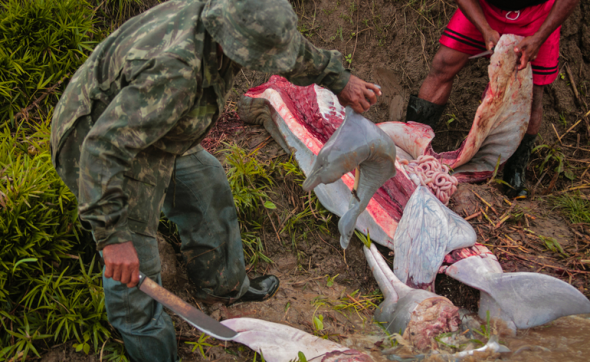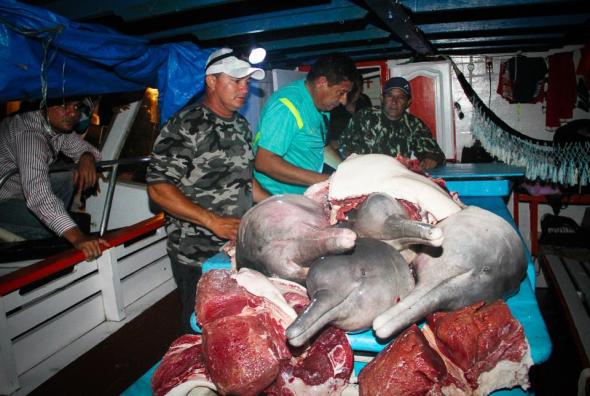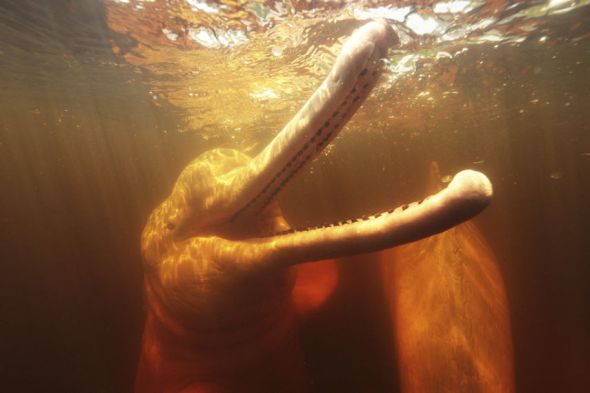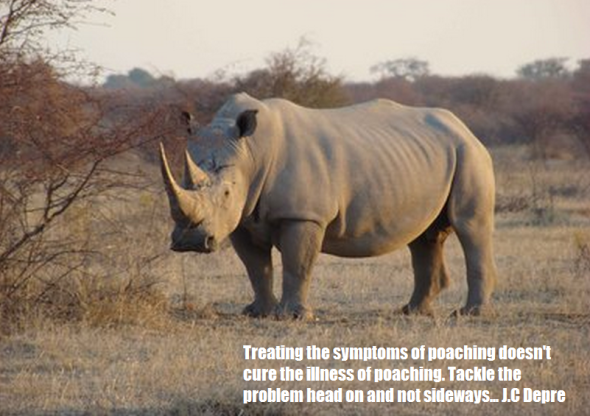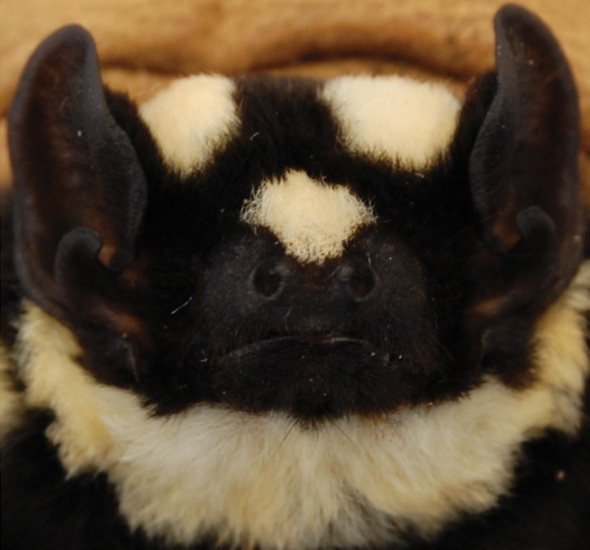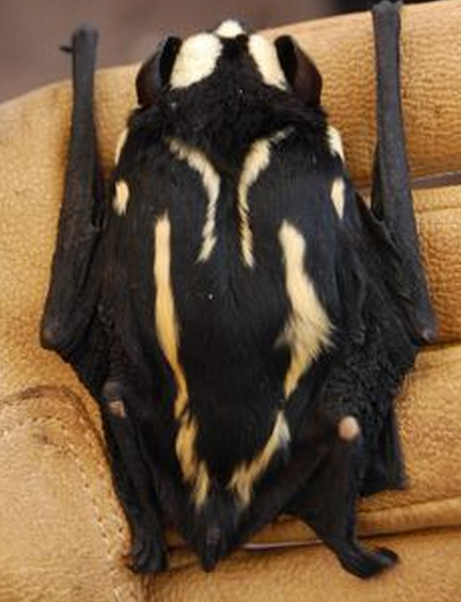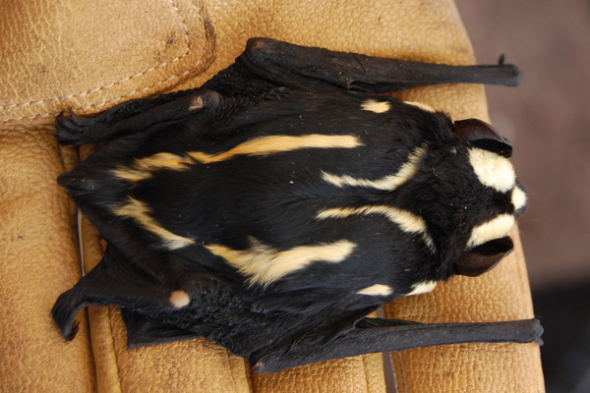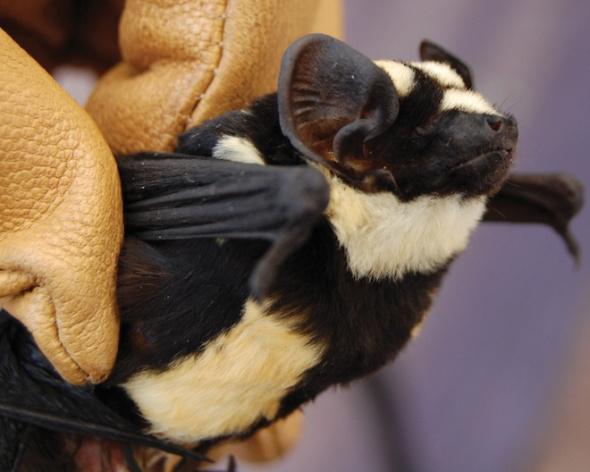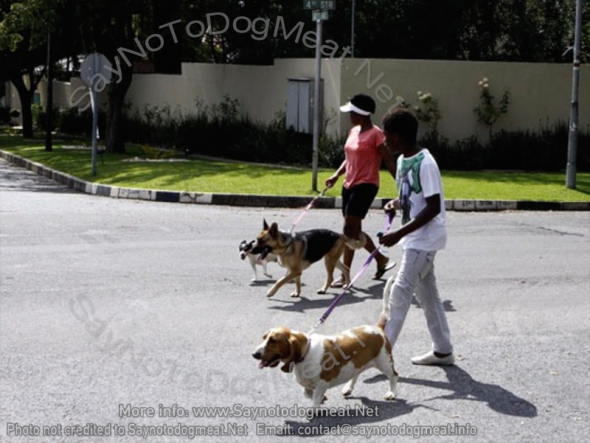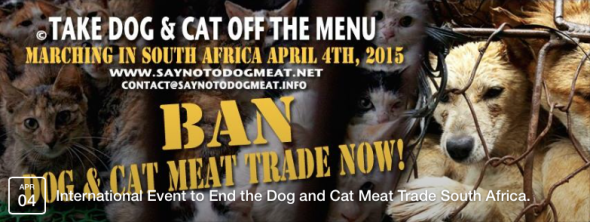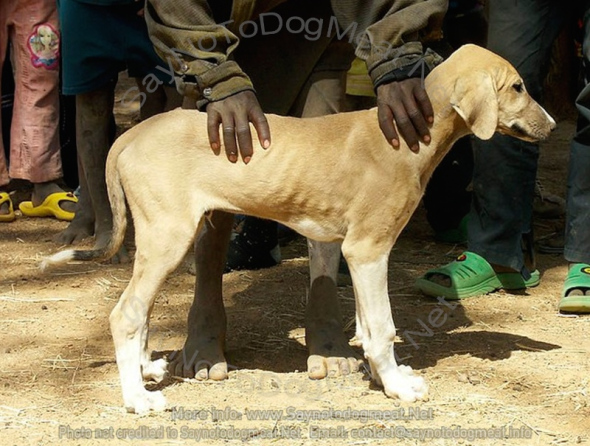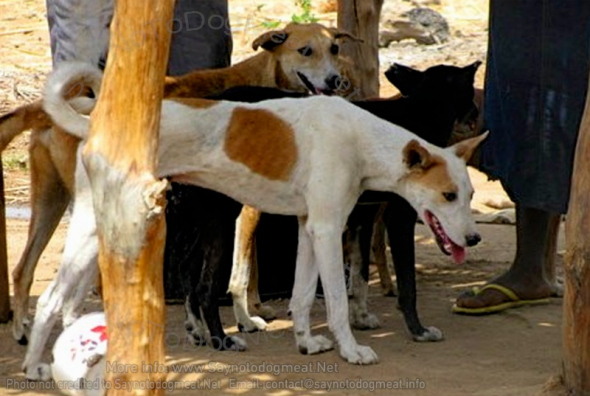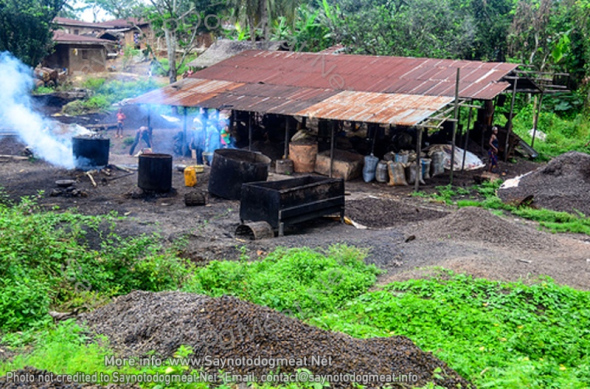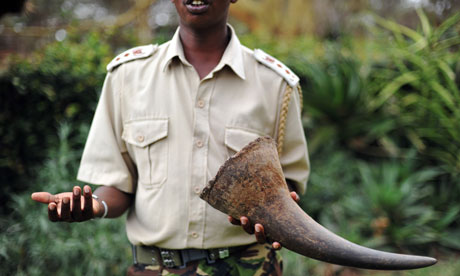Boto Poaching - Amazon River Dolphin Threatened - Killed for Bait.
At the start of the 2000 deep within the Amazon Jungles the massacre began, even the baby dolphins were not spared nor the gestating females that had their young sliced out of womb hung up like a piece of dead flesh in a butchers shop. Without hesitation or even a shred of remorse these barbaric monsters pictured [August 2014] here sliced the baby out off the mothers womb flinging it to one side. Brazil has since laid down a hunting ban however poachers are not stopping and already in Peru, Boto’s are mercifully slaughtered just for bait.
Pink River Dolphins or the Amazon River Dolphin as its commonly known scientifically identified as Inia geoffrensis aren’t hunted to eat, oh no, no. Like many fisherman in the west catch smaller fish to catch the bigger species River Dolphins are caught simply for this reason of which they are butchered up into slabs of meat then thrown back into crates just to catch smaller species of fish commonly known as the piracatinga that feasts on rotten flesh of dead animals - in this case the Dolphin.
You’ve probably by now become quite used to the all to familiar sites of Japans Dolphin massacres - but what about the killing fields within the Amazon?, Some conservationists seem non-to-bothered to print about this, as these bastards rip the hearts and souls out of aquatic life - At the start of this year some two thousand Amazon River Dolphins were slaughtered as can be seen in the pictures below. However European and South and North American Conservation Groups are taking a stand and have since handed in a 50,000 signature petition in. While it may stop hunting in Brazil will it stop the poaching? Furthermore will the illegal hunting in Peru, Ecuador, Venezuela, Columbia, Bolivia, Guyana, Surinam and French Guinea stop too.
No one stopped these killings, many people outside off the Amazon are completely oblivious to the fact this horrifying atrocity actually exists. Now you’ll know though, were not going to stick for this anymore. International Animal Rescue Foundation Brazil plus many smaller conservation groups has known of this slaughter for the past several years. When the Federal government imposed a [temporary ban] five years ago all seemed quiet, unfortunately the hunting ban was lifted with many killed by August, its a wonder if the species will actually recover within this year alone before hunting ends. Since the start of August though Brazil has imposed a new [complete ban] but this hasn’t as explained stopped poachers and hunters that are now working their way down the rivers of the Amazon.
By the second half of the year [2014] over three and a half thousand River Dolphins were expected to be slaughtered. The number could even be higher as were now in November. what’s angered us even more is this - its completely ILLEGAL!
Sixty percent of the Amazon rain-forest is within Brazil and so Brazil is home to more Amazon River Dolphins commonly known as [Botos] than any other South American country. Botos live in the rivers and lakes of the Amazon and enter the flooded forest during high water season. The Amazon, and particularly the flooded forest, are threatened habitats. Since the 1980s the rate of deforestation and exploitation of the Amazon Rain-forest for mining, logging, human settlement and cattle ranching has increased significantly. These commercial activities pose a severe threat to the region’s indigenous people and wildlife.
“Every year, we see in the region Sustainable Development Reserve Mamirauá , the harbor porpoise population decrease by 7.5% per cent. That is not sustainable”, he says. According to Vera, the aggravating factor is that fishermen prefer young River Dolphins, which hardly ever reach reproductive age. A male dolphin takes 10 years to reach reproductive age and the female between 6 and 7 years. Gestation takes between 11 and 13 months, furthermore, the young mother feeds little ones for two years. The slaughtering of the young is having a massive impact on the Amazon River Dolphin species of which even with a ban in place will see the entire species wiped out should the world not come together now to enforce a complete in Venezuela, Peru, Columbia, Bolivia, Guyana, Surinam and French Guinea.
The Amazon River Dolphin’s diet mainly consists of piracatinga which is a carnivorous catfish eaten by the locals and indigenous tribes. However humans in the Amazon require 4,500 [Boto’s] to harvest every year piracatinga.
So why is this slaughter not being seen among the western conservation world? Well basically this method of harvesting piracatinga which is [only illegal in Brazil August 2014] only began back in 2000. And despite the entire practice being 100% [illegal] governments and law enforcement agencies are doing little to stop it.
When the fisherman capture the Amazon River Dolphins slaughtering of the dead animal is usually done there and then so that the carcass doesn’t rot to quickly. the carcass is then placed into wooden crates of which the fishermen use to capture the piracatinga fish. The crates of carved up Dolphin meat inside the crate is then lowered into the water. Fisherman await and the piracatinga fish move in feasting of the dead dolphin rotting carcass. From there its easy pickings for the fishermen.
Its been widely reported in some magazines, articles and media that Brazil has indeed banned this practice which from July [2014] they did. However these media and press reporters [even science based ones] may want to visit the jungles of the Amazon of which this practice is STILL ongoing and has been since 2000. Conservationists were delighted at hearing the ban announced by the government of Brazil which owns the largest part of the Amazon Rain Forest. “It’s the biggest fisheries ban since 1967 when Brazil’s original faunal protection laws were made,” says Jone César of the Friends of the Manatee Association, a conservation group based in Manaus, Brazil.
Just because Brazil has banned the practice though doesn’t mean for one minute in the rivers of Eqador or Peru for example from which the River Dolphin also inhabits and is not within [Brazilian territory] that fishermen will continue the trade. Furthermore until the Brazilian ban is [completely enforced] its expected that fishermen will kill thousands more Boto’s to store for later fishing. Then of course we have poachers that can and will still flout this ban, and sadly this has already been seen.
And before we all start jumping up arms in the air celebrating the soon to be enforced Brazilian ban - Killing Botos for this purpose is spreading all over the Amazon and has been already been reported in Peru. It is a threat to the future of Botos. Should the governments of Venezuela, Columbia, Bolivia, Peru, Guyana, Surinam and French Guinea not follow suite more River Dolphins will be slaughtered just for a bait. While its also illegal to hunt Boto’s in Brazil by the start of [2015] its not illegal for hunters or poachers to pass up the river to Brazilian fishermen dead River Dolphin Carcasses. Dr Jose Depre - International Animal Rescue Foundation’s Chief Environmental Officer picked holes in this law and sadly this does need amending now to ensure that even the dead flesh of Amazon River Dolphins is not sold onto fishermen upstream.
“Its highly unlikely that the ban within Brazil is actually going to have any affect what-so-ever as policing such a massive area of rain-forest is about as easy as policing mangrove jungles the size of America” said Dr Josa Depre. Furthermore Dr Williamson Environmental CEO for I.A.R.F Europea stated “While the Killing of River Dolphins is 100% illegal within Brazil coming this new year it will not under any circumstances deter poachers elsewhere, we have much work to do rather than just focusing ones attention on Brazil, we need to push for the same laws in Venezuela, Peru, Columbia, Bolivia, Guyana, Surinam and French Guinea immediately, however don’t think for one moment this is going to be an easy ride”.
The ban within Brazil as explained will be enforced at the end of the year. Fisherman catch on average a year 140 tons of piracatinga fish so in all due respects its highly unlikely cruel and barbaric killing of our Amazon River Dolphin is actually going to stop.
You can help by signing this petition below as soon as possible.
Read more here on the petition that was delivered this August: http://www.ale.am.gov.br/2014/08/21/comissao-do-meio-ambiente-recebe-ativistas-do-alerta-vermelho/
With thanks to Dr Josa C. Depre Chief Environmental Officer and Dr J. Williamson CEO Europa IARFE
Corruption - Poverty - Relocation - Shoot to Kill
Corruption-Poverty-Relocation-Shoot to Kill Policy!
In Central Africa approximately 80% of rangers are, on some level, involved in trafficking. Because communities are small, some rangers and poachers know each other directly and others, occasionally, are bribed. Luc Mathot of Conservation Justice has organized the arrest of 4 rangers in the Congo in 2012 and 3 from Gabon in 2013. Ranger involvement is less common in South Africa. Strict laws are enforced to curtail such actions and rangers found conspiring with poachers are relived from duty. However corruption is more widespread and larger than you could possibly imagine. Within SANParks for instance evidence has yet again emerged of five ranger involved in poaching activities. When this information is passed onto SANParks their response is “silent”. Back in 2013 we advised SANParks that they must routinely undertake polygraph testing of all rangers and staff involved with wildlife duties. Again they fail to acknowledge our concerns.
Illicit wildlife trade is the fourth largest illegal activity worldwide and is worth $23 billion US dollars per year. In order to understand what is happening in illegal trade, the prices that wildlife products yield must be monitored. Scarcity of a product reflects higher prices whereas low prices reflect abundance. High profit and turn over are the driving factor and poachers have a very small window to work in. If the probability of being caught and punished (i.e. imprisonment or death) is high, this will alter the expected price tag. Many reserve barriers are not deterrents for poachers, as they are minimal (i.e. barbed wire and sparse fencing). Moreover, legislation and borders between subsistence hunting and poaching are blurred. The majority of rhino populated countries have low penalty policies. However, Botswana has the lowest poaching rate due to its ‘zero tolerance-shoot to kill’ policy. The Defense Force treats apprehended poachers as aggressive military threats if they do not surrender their weapons immediately they are shot dead on site - International Animal Rescue Foundation supports this regardless of some public outcry we have to show poachers that killing our wildlife will most certainly involve rangers taking poachers out. Other factors that keeps poaching minimal is the country’s remoteness and low populace. Conservationists were looking to relocate South African rhinos via helicopter to Botswana for these reasons (Carrington, 2014). However, due to high cost and inhumane transportation complications this option has been rejected.
What’s more inhumane though? the transportation of rhinos and so called costs or the killing of rhinos? Personally we’d like to see a 50% score of rhinos moved from the Kruger to Botswana were breeding can take place securely and a shoot to kill policy is fair game. Poachers see South Africa as easy pickings. Until an immediate shoot to kill policy is given our rhinos will be in danger.
Poverty and poaching go hand-in-hand. Impoverished communities are more likely to engage in illegal activities so long as there is a demand for goods. Poaching organizations turn to disadvantaged communities to recruit new personnel. The sole source of income for these remote areas is farming, however, because of its remoteness and lack of transportation, selling produce and livestock is limited. If communities had ways of traveling further into more populated areas, they would have a better chance at sales. However, due to word of mouth, some consumers will travel to the farms to purchase goods, which allows farmers to raise their prices. These methods are sill no match for payouts from rhino horns and ivory. Because poachers are well financed and wildlife products can easily be turned into cash, the decision to poach becomes alluring to those in need. Factors such as social, political, and environmental status are also considered.
Those who begin as poachers have the opportunity to get promoted to better paying, less conspicuous positions. A simple poacher can move up to a chief position and organize trafficking for poachers. One could also sell his own ivory and become a trafficker. The ‘middle-man’ position takes product to the richer barons within cities. These people have an actual chance at moving up after accumulating enough money that allows them to work in less conspicuous ranks. According to TRAFFIC-ASIA, there is a direct link between the rise in regional incomes and illegal wildlife trading. Poachers who enter protected areas are more prone to be risk takers. Some are bribed with cigarettes, beer, money, or other items not so commonly found in local communities.
Poverty is not the only driving force in poaching. Illegal trade has become war-like with a complex network of violent militias, terrorists, government corruption, and organized crime, fueled by demand predominantly from Asia and the rising economic status in Vietnam. In 2012, a 10 kg rhino horn would bring in $20,000 per kg on the African-based Asian-run market. Today, prosperous consumers in China and Vietnam have driven the price up to $65,000 per kg and can fetch as much as $100,000 on the black market, making horns more valuable than platinum, gold, or cocaine. Because of its’ increasing prosperity, Vietnam holds the chief market on rhino horns, yet it has little to do with medicinal ailments. They are sold as recreational drugs for partygoers, aphrodisiacs, for detoxification from excessive food and/or alcohol consumption for the more affluent, décor, gifts such as horn bracelets, and necklaces, as well as a deceptive ‘miracle drug’ to cheat cancer patients out of cash. In 2008, the Vietnamese Embassy was found to be a participant in illegal rhino horn trade.
Conclusion:
South African government must implement a shoot to kill policy as soon as arms are not dropped. poverty must be tackled within “all African wildlife organisations” as this is one primary reason our wildlife is being slaughtered. Corruption must be tackled head on and NOW. Relocation of South African Rhinos to Botswana where a more policed approach is seen must be on the agenda.
Dr J. C. Depre and Ambassador S. Farthing
Rhino Welfare Africa.
International Animal Rescue Foundation
[email protected]
RESEARCH TEAM BELOW
Anonymous. (2014, September). Former poacher. (O. Gasaya, & L. Jorgensen, Interviewers)
Burton, J. (2014, September). CEO at World Land Trust. (L. Jorgensen, Interviewer)
Carrington, D. (2014, September). Inside Africa. Retrieved September 2014, from CNN World:http://www.cnn.com/2014/09/11/world/africa/rhinos-on-a-plane/index.html?hpt=hp_c4
Coghlan, A. (2014, January). Record poaching pushes rhinos towards extinction. Retrieved September 2014, from New Scientist-Life: http://www.newscientist.com/article/dn24894-record-poaching-pushes-rhinos-towards-extinction.html#.VAuOJWSwJZ8
Duffy, R., & St. John, D. (2013, June). Poverty, Poaching, and Trafficking; What are the Links? Retrieved September 2014, from Rhino Owners: http://www.rhinoowners.org/WYSI/assets/Documents/EoD_HD059_Jun2013_Poverty_Poaching.pdf
Hill, G. (2014, September). Director of Risk and Intellegence at Africa.cx. (L. Jorgensen, Interviewer)
Mathot, L. (2014, October). Founder and Director of Conservation Justice. (L. Jorgensen, Interviewer)
Montesh, M. (2012). Rhino Poaching: A New Form of Organised Crime. Retrieved September 2014, from University of Soutb Africa: http://www.unisa.ac.za/claw/news/wp-content/uploads/2013/04/rhion-poaching-for-profit.pdf
Pandolfi, A. (2014). Wildlife Conservation UAV Challenge Supporters. Retrieved October 2014, from Kashmir World Foundation:www.kashmirworldfoundation.org
Peace Parks Foundation. (2014). COMBATTING WILDLIFE CRIME. Retrieved September 2014, from Peace Parks Foundation: http://www.peaceparks.org/programme.php?pid=24&mid=1021
Sandram, S. (2014, September). Wildlife Officer at Gonarezhou National Park. (L. Jorgensen, Interviewer)
Sas-Rolfes, M. ‘. (2012, February). THE RHINO POACHING CRISIS: A MARKET ANALYSIS. Retrieved September 2014, from Save The Rhino Trust: http://savetherhinotrust.org/programmes/84-the-rhino-poaching-crisis-a-market-analysis
Thomas, R. (2012, August). “Loose horns”, surging demand and easy money create “perfect storm” for rhino poaching. Retrieved September 2014, from TRAFFIC: http://www.traffic.org/home/2012/8/21/loose-horns-surging-demand-and-easy-money-create-perfect-sto.html
TRAFFIC. (2008). TRAFFIC’s engagement on African rhinoceros conservation and the global trade in rhinoceros horn. Retrieved September 2014, from TRAFFIC: http://www.traffic.org/rhinos/
Yale Environment360. (2014, January). e360 Digest. Retrieved September 2014, from Environment 360:http://e360.yale.edu/digest/more_than_1000_rhinos_poached_in_2013_south_african_officials_say/4051/
Read more here on the very people trying to stop us from undertaking our work - Liz Bradly from the UK a serial stalker and known sociopath has indulged in countless hours of trying to report the very articles that help save animals just to hide behind a veil of CELLULAR DEVICES. This time she again was caught red handed completely forgetting that the site she had just reported too was only to make her message a cowardly one public.
http://saynotodogmeat.net/2014/07/23/under-attack-from-hate-groups/
Now we know whom the animal hater is - we’re going to deal with that animal hater in the same manner as we do dog fighters.
Sudanese Badger Bat - Niumbaha superba
Every month there is an estimated twenty species of new flora and fauna located on Planet Earth. However back in 2013 scientists from the University of Bucknell University and Fauna & Flora International located deep in the heart of South Sudan a new bat species commonly named as the Pied Bat or Badger bat. And what a stunningly beautiful bat this is too which oddly does look identical to the markings of our Chinese Panda.
The scientific name related to this species of bat was thought to be related to the Glauconycteris superba which for now thankfully is listed as [least concern] on the International Union for the Conservation of Nature’s Red List identified back in 1939 Dr Haymen whom was the first to discover this particular species of bat. However the new “genera” pictured was discovered in 2013 DeeAnn Reeder, an Associate Professor of Biology at Bucknell.
This species of Pied bat (Glauconycteris superba) was bordering endangerment back in the mid 1990’s of which from 1996-2004 was listed as [vulnerable], to date though its population trend or how many Pied bats actually exist is currently unknown.
So whats the news on the “Panda bat” as its commonly named?
This is a special bat, and not just because of its strikingly beautiful spots and stripes. This is a rare specimen, whose discovery in South Sudan led researchers to identify a new genus of bat. The bat is just the fifth specimen of its kind ever collected. DeeAnn Reeder, an Associate Professor of Biology at Bucknell and first author of the paper announcing the new bat genus, recognized the bat as the same species as a specimen captured in the Democratic Republic of the Congo in 1939. That specimen was classified as Glauconycteris superba, but after detailed analyses she and her colleagues determined it did not belong in the genus Glauconycteris.
It was so unique that they needed to create a new genus for it. Reeder and her colleagues named the new genus Niumbaha, which means “rare” or “unusual” in Zande, the language spoken in Western Equatoria State, where the bat was captured. The bat’s full scientific name is Niumbaha superba, reflecting both the rarity and the magnificence of this creature.
“Our discovery of this new genus of bat is an indicator of how diverse the area is and how much work remains,” Reeder said in a press release.
So what’s the news on this species of bat?
Well firstly we can state that this species of bat (Niumbaha superba) although not the same genera was primarily located by Dr Haymen in 1939 Niumbaha superba oddly is not listed on the International Union for the Conservation of Natures Red List of (threatened species) as this newly discovered genera is listed as [vulnerable] wheres its relative Glauconycteris superba is listed as least concern.
The pied (panda bat) is found in the Democratic Republic of the Congo, Ivory Coast, Ghana and South Sudan, the genus Niumbaha was identified by Reeder, Helgen, Vodzak, Lunde & Ejotre, in 2013. The species lives in natural habitats, tropical or sub-tropical rain-forests or tropical moist lowland forests.
To date we are only aware that the current threats surrounding this species is habitat loss. However this soon could change of which threats from hunters hunting for the bush meat trade could see the species pushed into extinction. Habitat loss or habitat fragmentation is playing quite a pivotal role with regards to many species of bats declining worldwide. However other species of bat that normally roost in caves seem to be less threatened by such habitat human disturbances.
Bats make up a quarter of the mammalian diversity on the planet, and they are the only mammal that can fly. The African continent and Madagascar and its associated islands contain about 258 extant species of bats, which comprises about 25% of the global bat diversity. Bats are an important component in ecosystem health and condition. They occupy a critical niche, the insectivorous species being primary nocturnal predators and are susceptible to increased levels of pesticides, while frugivorous species are critical for forest regeneration. Many plants are dependent on these night time visitors (e.g. Baobab), for both pollination and seed dispersal.
Both groups of bats are also greatly susceptible to environmental change especially Niumbaha superba. The effects of habitat and climate change on these species are unknown, and if so, there is much speculation as to the impacts, both positive and negative. These impacts on bats have a direct impact on food security and human related zoonotic diseases. What is of primary concern is that we know very little about the distribution, abundance or the biology of the various species. Also from a cultural perspective, bats are perceived by most African cultures as associated with dark and evil magic, and are persecuted.
Within western, north and the Central African Republic (bats) are hunted and eaten of which this year has been linked again to the worlds most deadliest virus - Ebola Hemorrhagic Fever (EHF). While hunting though plays a threat to the decline of bat species habitat fragmentation is most certainly the largest threat to the all species/genera.
Because bats have low reproductive rates, populations are very susceptible to elevated mortality or depressed recruitment. There is scientific concern about the conservation status of bats as many species of bats are increasingly affected by multiple actions of humans such as ignorance, suspicion, pesticide poisoning, roost destruction and closure, habitat loss, over-exploitation, and extermination as pests. Avoid disturbance of bats in caves, including the lighting or use of fires in caves. Some bats have moved into residential areas because human expansion has resulted in loss of habitat, forcing bats to look for alternative roosts in which to live and raise their young.
And of course while we know habitat loss is currently a threat to this species of Niumbaha superba other threats could/will also play a role in its decline that could evidently see this new genera of bat killed off. These these threats are as you may have guessed “human made up myths”..
An uncontrollable, irrepressible fear of bats may exist, but it is often the result of centuries of prejudice, misinformation and ignorance about bats. Dracula and other horror stories have contributed greatly to these misconceptions causing people to fear them and therefore be unconcerned about their conservation. Such as;
- The incidence of rabies is rare.
- Bat droppings in buildings usually are not a source of Histoplasmosis.
- Bats are not filthy and will not infest homes with dangerous parasites.
- Bats are not aggressive and will not normally attack people or pets.
- South African bats do not feed on blood. (Vampire bats, which do feed on blood, live in Latin America) and the feasting on blood is mainly of cattle or other large mammalians - although there has been some very small isolated rare cases of Vampire bats attacking humans and feeding of them. Again this is (extremely rare).
So what else do we know about Niumbaha superba other than the threats currently facing the species, future threats and habitat degradation?
OK firstly the Niumbaha superba is really more stripped like a badger but does have we suppose some type of identical markings to that of the Chinese Panda. Niumbaha superba has some pretty amazing spots and stripes with around one and a half centimeters of fur covering most of its body manly on the back and undersides. Its cranial characters, its wing characters, its size, the ears literally everything you look at doesn’t fit that of the previous species located back in 1939 by Dr Haymen stated Reeder. You can read more on Reeder’s discovery here
Niumbaha superba is an insectivorous bat meaning it feeds primarily on just insects, insectivorous bats are critically important to the environment as they help keep pests in control that would otherwise if not controlled damage vast swathes of crops, trees, plants and invade human populated areas. Insectivorous bats are also very important to humans as they help keep mosquitoes in check that endanger human life by the spread of Malaria which is known to be one of the Africa’s largest human killing viruses in.
So if ever your in South Sudan do keep a lookout for this stunning and most beautiful bat commonly named as the (pied bat, little badger bat, badger bat or panda bat).
For more information on African and international conservation projects please view our Facebook page below.
International Animal Rescue Foundation Africa
For further information please email us hereto;
[email protected] And don’t forget to please donate to our cause via clicking the link here >DONATE< Our transparency register can be viewed here of which is updated every six months and due for update this coming week. And don’t forget to subscribe for free to our Environmental News and Media site of which you are automatically sent news as its pressed directly to your email address. Subscribe here at www.speakupforthevoiceless.org
South Africa: President Says Dogs Should Not Be Mans Best Friend
According to the South African president Jacob Zuma, owning a pet is part of ‘white culture’ and people should focus on family welfare instead. He says a dog should not be man’s best friend. The president’s statement, which was made a little over a year ago was met by anger from many pet lovers.
His presidential office tried to smooth things over by telling Star news he was encouraging “the previously oppressed African majority” to uphold its own culture.
“Will I become ‘more African’ if I kick my dog, President Zuma,” asked an angry pet owner.
One humorist wrote: “Well, that pretty much rules out that photo opportunity with Zuma, the Obamas and their pet dog, Bo, in the White House.”
During his speech to an appreciative crowd in his home province KwaZulu-Natal, the president said people who love dogs more than people have a “lack of humanity” and that some people are trying in vain to “emulate whiteness.”
“Even if you apply any kind of lotion and straighten your hair, you will never be white,” said the president.
Star news said he gave examples of people loving animals more than other human beings — letting a dog sit in the cab of a truck while a worker has to sit in the back in the rain, or rushing an animal to the veterinarian while ignoring sick relatives or workers.
Saynotodogmeat.Net is pleased to announce South Africa is participating in our Global March For Dogs and Cats In The Meat Trade!
We invite all South African pet lovers to join our march and bring your family and pets too, April 4th, 2015.
Africa hosts a lucrative dog and cat meat trade which has been kept in the shadows for too long. We are fighting to end the cruel pet meat trade in Africa and Asia. People from many nations will be marching with us, as one collective voice and we hope you will join us too. Please go ahead and mark your calendar. Join us and become the voice of the voiceless.
For information on our global march or how you can help us, please email us: [email protected].
Thank you for reading,
Michele Brown.
GLOBAL MARCH
Saturday April 4th, 2015 Saynotodogmeat.Net is hosting a Global March for dogs and cats in the live meat trade. Please march with us, in your country. It will be an orderly and peaceful march but we need more ‘demonstration leaders.’ If you can help us, PLEASE EMAIL: [email protected]
Bring your family, children, pets and banners; we need as many people as possible, worldwide. Please mark your calendar and join our march. If you haven’t already done so, please click the box to let us know you are coming: https://www.facebook.com/events/294347744053559/
WE ARE NOW ACCEPTING DONATIONS
Saynotodogmeat.Net is now accepting donations: PLEASE MARK ALL DONATIONS “SAY NO TO DOG MEAT.NET” https://www.facebook.com/SayNoToDogMeat/app_117708921611213
No donation is too small and we are very appreciative of your help and support. Very soon we will be writing a full article outlining where donations will be used. You will receive an electronic receipt and we will too, which we will keep for historical data purposes. NO DONATION will be used to produce clothing with logos on, badges or banners. Donations are NOT for the directors. ALL MEMBERS FUND THEMSELVES.
PLEASE CONTINUE TO SIGN AND SHARE OUR SAYNOTODOGMEAT.NET PETITIONS; WHEN COMPLETED THEY’LL BE WILL BE HAND DELIVERED
PETITION FOR SOUTH KOREA
https://www.change.org/en-GB/petitions/president-geun-hye-park-take-dog-cat-meat-off-the-menu
PETITION FOR VIETNAM and THAILAND ANTI-SMUGGLING
https://www.causes.com/actions/1764795-a-petition-to-president-truong-tang-sang-moj-prime-minister-yingluck-shinawatra
PETITION FOR HEALTH MINISTER OF VIETNAM
https://www.causes.com/campaigns/71258-minister-of-public-health-thi-kim-tien
PETITION FOR NAGALAND
https://www.change.org/en-GB/petitions/additional-chief-secretary-take-dog-meat-of-nagaland-menu
PETITION TO BAN THE TRADE IN NIGERIA
https://www.change.org/en-GB/petitions/governor-of-lagos-hon-babatunde-fashola-ban-the-nigerian-dog-meat-trade-lagos
LETTER TO THE PRESIDENT OF THE PHILIPPINES
http://saynotodogmeat.net/2014/04/04/email-the-philippines-president-to-end-the-dog-meat-trade/
PLEASE SEND TO THE MUSLIM COUNCIL
http://saynotodogmeat.net/2014/01/17/open-email-to-the-muslim-council-of-great-britain/
PLEASE HELP THE PEOPLE OF TURKANA HERE
http://saynotodogmeat.net/2014/01/31/turkana-africa-emergency-aid-letter/
EMAIL THE GOVERNOR OF NIGERIA: New Address: [email protected]
http://saynotodogmeat.net/2013/12/03/email-excellency-dr-honorable-alausa-excellency-honorable-babatunde-fashola/
JOIN THE WORLDWIDE GLOBAL EVENT HERE TODAY
PLEASE EMAIL US A.S.A.P FOR INFORMATION ON HOW YOU CAN HELP. SATURDAY 4TH APRIL 2015 – TIME TO MARCH FOR DOGS AND CATS IN THE MEAT TRADE.
JOIN HERE https://www.facebook.com/events/294347744053559/ SHARE EVERYWHERE WILDLY
SayNoToDogMeat.Net FACEBOOK and TWITTER
Email: [email protected]
#saynotodogmeat
ALL RIGHTS RESERVED
PLEASE CREDIT THE ORGANISATION WHEN SHARING
Dog Meat Is Big Business in Nigeria
In a city where animal activists are almost invisible, dogs are crammed into small cages and trucked into Calabar from North Nigeria, to the waiting hands of dog butchers who hack them to death for dog meat.
Nigeria has a booming dog meat trade and the city of Calabar is one of it’s biggest hot-spots, where dog meat is openly sold on street corners and eaten by a broad spectrum of people who refer to it as ‘4o4.’ Chunks of dog meat can sell for as little as a hundred naira (less than a dollar), while a whole pot of dog meat can sell for as much as N14,000 or $87.00.
In Calabar, eating dog meat is seen a way of relaxing for some people and they can’t see whats wrong with it. However, people in Calabar who are against eating dog meat say “It is inhuman to eat up a pet, especially a dog which can become a family member.” Dog eaters reply “It is something as old as our culture. Our forefathers ate dog meat and we grew up learning to eat dog meat and by all standards, it is ok”.
Dog eaters far outnumber non-dog eaters in Calabar where its pet meat trade is lucrative and no matter how many dogs they kill, there’s always buyers waiting to eat them.
Weekends are the busiest time for slaughtering and eating dogs, especially Sundays when people in Calabar like to get together with family and loved ones and relax and eat dog meat.
Interestingly, women in Calabar eat just as much dog meat as men. Throughout Asia, dog meat is eaten mainly by men and women are shunned from eating it for a variety of reasons, mainly because men believe dog meat boots a man’s virility and is therefore dangerous for women to indulge in.
Dog meat used to be restricted to certain areas in Calabar and was mainly served with palm wine. Due to clever marketing, dog meat in Calabar is now a mainstream food which is served like any other restaurant food, with multiple choices of side dishes and beverages.
Just like in Asia a few decades ago, dog meat has gone from being eaten secretly to chic restaurant food that’s accepted everywhere, thanks to some clever marketing by dog traders, dog butchers and dog meat cooks.
In the same way Saynotodogmeat.Net are fighting Asia’s dog and cat meat trade, we will continue to fight Africa’s cruel pet meat trade too. We won’t stop until the dog and cat meat trade is brought to an END in Africa and Asia.
Thank you for reading,
Michele Brown.
GLOBAL MARCH
Saturday April 4th, 2015 Saynotodogmeat.Net is hosting a Global March for dogs and cats in the live meat trade. Please march with us, in your country. It will be an orderly and peaceful march but we need more ‘demonstration leaders.’ If you can help us, PLEASE EMAIL: [email protected]
Bring your family, children, pets and banners; we need as many people as possible, worldwide. Please mark your calendar and join our march. If you haven’t already done so, please click the box to let us know you are coming: https://www.facebook.com/events/294347744053559/
WE ARE NOW ACCEPTING DONATIONS
Saynotodogmeat.Net is now accepting donations: PLEASE MARK ALL DONATIONS “SAY NO TO DOG MEAT.NET” https://www.facebook.com/SayNoToDogMeat/app_117708921611213
No donation is too small and we are very appreciative of your help and support. Very soon we will be writing a full article outlining where donations will be used. You will receive an electronic receipt and we will too, which we will keep for historical data purposes. NO DONATION will be used to produce clothing with logos on, badges or banners. Donations are NOT for the directors. ALL MEMBERS FUND THEMSELVES.
PLEASE CONTINUE TO SIGN AND SHARE OUR SAYNOTODOGMEAT.NET PETITIONS; WHEN COMPLETED THEY’LL BE WILL BE HAND DELIVERED
PETITION FOR SOUTH KOREA
https://www.change.org/en-GB/petitions/president-geun-hye-park-take-dog-cat-meat-off-the-menu
PETITION FOR VIETNAM and THAILAND ANTI-SMUGGLING
https://www.causes.com/actions/1764795-a-petition-to-president-truong-tang-sang-moj-prime-minister-yingluck-shinawatra
PETITION FOR HEALTH MINISTER OF VIETNAM
https://www.causes.com/campaigns/71258-minister-of-public-health-thi-kim-tien
PETITION FOR NAGALAND
https://www.change.org/en-GB/petitions/additional-chief-secretary-take-dog-meat-of-nagaland-menu
PETITION TO BAN THE TRADE IN NIGERIA
https://www.change.org/en-GB/petitions/governor-of-lagos-hon-babatunde-fashola-ban-the-nigerian-dog-meat-trade-lagos
LETTER TO THE PRESIDENT OF THE PHILIPPINES
http://saynotodogmeat.net/2014/04/04/email-the-philippines-president-to-end-the-dog-meat-trade/
PLEASE SEND TO THE MUSLIM COUNCIL
http://saynotodogmeat.net/2014/01/17/open-email-to-the-muslim-council-of-great-britain/
PLEASE HELP THE PEOPLE OF TURKANA HERE
http://saynotodogmeat.net/2014/01/31/turkana-africa-emergency-aid-letter/
EMAIL THE GOVERNOR OF NIGERIA: New Address: [email protected]
http://saynotodogmeat.net/2013/12/03/email-excellency-dr-honorable-alausa-excellency-honorable-babatunde-fashola/
JOIN THE WORLDWIDE GLOBAL EVENT HERE TODAY
PLEASE EMAIL US A.S.A.P FOR INFORMATION ON HOW YOU CAN HELP. SATURDAY 4TH APRIL 2015 – TIME TO MARCH FOR DOGS AND CATS IN THE MEAT TRADE.
JOIN HERE https://www.facebook.com/events/294347744053559/ SHARE EVERYWHERE WILDLY
SayNoToDogMeat.Net FACEBOOK and TWITTER
Email: [email protected]
#saynotodogmeat
ALL RIGHTS RESERVED
PLEASE CREDIT THE ORGANISATION WHEN SHARING
Africa: Live Dogs Exchanged For Palm Oil
Danwaki Dog Market is one of the main dog markets in Nigeria where live dogs are bartered in exchange for palm oil. Thursday mornings are the main day, at the Plateau State Dog Market, Danwaki.
On the day before (Wednesday), Kanke dog vendors get their stalls ready to attract as many customers as possible. Most Nigerian markets traders arrive at dawn, but for Danwaki, many traders travel through the night in lorries because by 4.00am the market is already bustling with activity. By 5.00am business is well underway.
Dog traders and buyers travel all the way from states like Cross Rivers, AkwaIbom, Benue, Nasarawa, Taraba, and many other southern states. Dog traders from neighbouring countries of Cameroun and Ivory Coast also frequent this dog market. Traders bring goods from their home states, in exchange for live dogs.
Palm oil from Calabar is known as “red gold,” giving Calabar traders an upper hand in doing business, as they exchange live dogs over for the equivalent value of palm oil.
A regualr dog buyer at Danwaki dog market, Mrs. Bassy Essien says she travels to the dog market twice a month to exchange palm oil for dogs because the business is “lucrative and rewarding,” the only risk involved is having to travel through the night all the way from Calabar to Jos in a lorry.”
She says once she gets the dogs back to Calabar they “sell like hot cakes” because their cooked as delicacies at local hot-beer joints like the Marina Beach spots, where politicians and foreign nationals sit outside in the cool of the evenings and enjoy eating dog meat.
She says:“With dog meat served together with hot local beer, an evening is made in Calabar!”
Another dog trader who calls himself Akpan said: “I have lived all my life in Calabar, but 12 years ago I started my dog business, that I discovered Marina Spot. When I see big politicians enjoy the delicacy dog meat I feel exceedingly fulfilled that I am a part of their joy.”
Dogs are bred in Plateau State for dog meat. [ NOTE: Breeding dogs for consumption means DOG FARMS.]
In Kanke Local Government Area it is considered a great honour to welcome a visitor with dog meat delicacy. Dog meat has now become a trend in most famous “joints,” even in Jos city. People joke that dogs which westerners call “man’s best friend” has now been renamed “man’s best taste.”
Does Dog Meat Have Powers To Cure?
Many people who eat dog meat falsely believe the meat has medicinal properties, including the false belief that dog meat improves a man’s sexual performance. This ties directly in with customers enjoying tough dog meat, which is brought about through cruel methods of slaughter which are done to deliberately flood the dog’s body with as much adrenaline s possible - making the meat as tough as possible. This is falsely believed to enhance a man’s libido. It will NOT.
Dog meat contains no magic, no power and no cures. If you’re impotent then seek professional medical help or see a sex therapist, but do NOT expect to get relief from eating dogs or cats.
Some people believe dog meat cures a lot of disease such as malaria, typhoid, dysentery in children, and even protection against witchcraft. It is falsely believed by some dog meat eaters that if they eat enough dog meat they will be protected from evil. There is no scientific evidence proving dog meat does anything except cure hunger.
Veterinarian Dr. Pam Musa believes dogs are inherently emotional and friendly to humanity and that slaughtering dogs for food is excessively cruel.
Thank you for reading,
Michele Brown.
GLOBAL MARCH
Saturday April 4th, 2015 Saynotodogmeat.Net is hosting a Global March for dogs and cats in the live meat trade. Please march with us, in your country. It will be an orderly and peaceful march but we need more ‘demonstration leaders.’ If you can help us, PLEASE EMAIL: [email protected]
Bring your family, children, pets and banners; we need as many people as possible, worldwide. Please mark your calendar and join our march. If you haven’t already done so, please click the box to let us know you are coming: https://www.facebook.com/events/294347744053559/
WE ARE NOW ACCEPTING DONATIONS
Saynotodogmeat.Net is now accepting donations: PLEASE MARK ALL DONATIONS “SAY NO TO DOG MEAT.NET” https://www.facebook.com/SayNoToDogMeat/app_117708921611213
No donation is too small and we are very appreciative of your help and support. Very soon we will be writing a full article outlining where donations will be used. You will receive an electronic receipt and we will too, which we will keep for historical data purposes. NO DONATION will be used to produce clothing with logos on, badges or banners. Donations are NOT for the directors. ALL MEMBERS FUND THEMSELVES.
PLEASE CONTINUE TO SIGN AND SHARE OUR SAYNOTODOGMEAT.NET PETITIONS; WHEN COMPLETED THEY’LL BE WILL BE HAND DELIVERED
PETITION FOR SOUTH KOREA
https://www.change.org/en-GB/petitions/president-geun-hye-park-take-dog-cat-meat-off-the-menu
PETITION FOR VIETNAM and THAILAND ANTI-SMUGGLING
https://www.causes.com/actions/1764795-a-petition-to-president-truong-tang-sang-moj-prime-minister-yingluck-shinawatra
PETITION FOR HEALTH MINISTER OF VIETNAM
https://www.causes.com/campaigns/71258-minister-of-public-health-thi-kim-tien
PETITION FOR NAGALAND
https://www.change.org/en-GB/petitions/additional-chief-secretary-take-dog-meat-of-nagaland-menu
PETITION TO BAN THE TRADE IN NIGERIA
https://www.change.org/en-GB/petitions/governor-of-lagos-hon-babatunde-fashola-ban-the-nigerian-dog-meat-trade-lagos
LETTER TO THE PRESIDENT OF THE PHILIPPINES
http://saynotodogmeat.net/2014/04/04/email-the-philippines-president-to-end-the-dog-meat-trade/
PLEASE SEND TO THE MUSLIM COUNCIL
http://saynotodogmeat.net/2014/01/17/open-email-to-the-muslim-council-of-great-britain/
PLEASE HELP THE PEOPLE OF TURKANA HERE
http://saynotodogmeat.net/2014/01/31/turkana-africa-emergency-aid-letter/
EMAIL THE GOVERNOR OF NIGERIA: New Address: [email protected]
http://saynotodogmeat.net/2013/12/03/email-excellency-dr-honorable-alausa-excellency-honorable-babatunde-fashola/
JOIN THE WORLDWIDE GLOBAL EVENT HERE TODAY
PLEASE EMAIL US A.S.A.P FOR INFORMATION ON HOW YOU CAN HELP. SATURDAY 4TH APRIL 2015 – TIME TO MARCH FOR DOGS AND CATS IN THE MEAT TRADE.
JOIN HERE https://www.facebook.com/events/294347744053559/ SHARE EVERYWHERE WILDLY
SayNoToDogMeat.Net FACEBOOK and TWITTER
Email: [email protected]
#saynotodogmeat
ALL RIGHTS RESERVED
PLEASE CREDIT THE ORGANISATION WHEN SHARING

